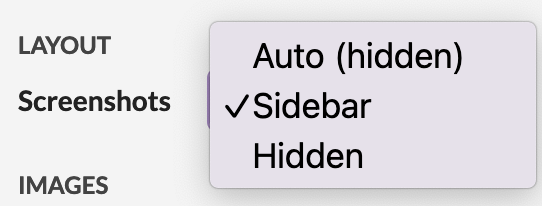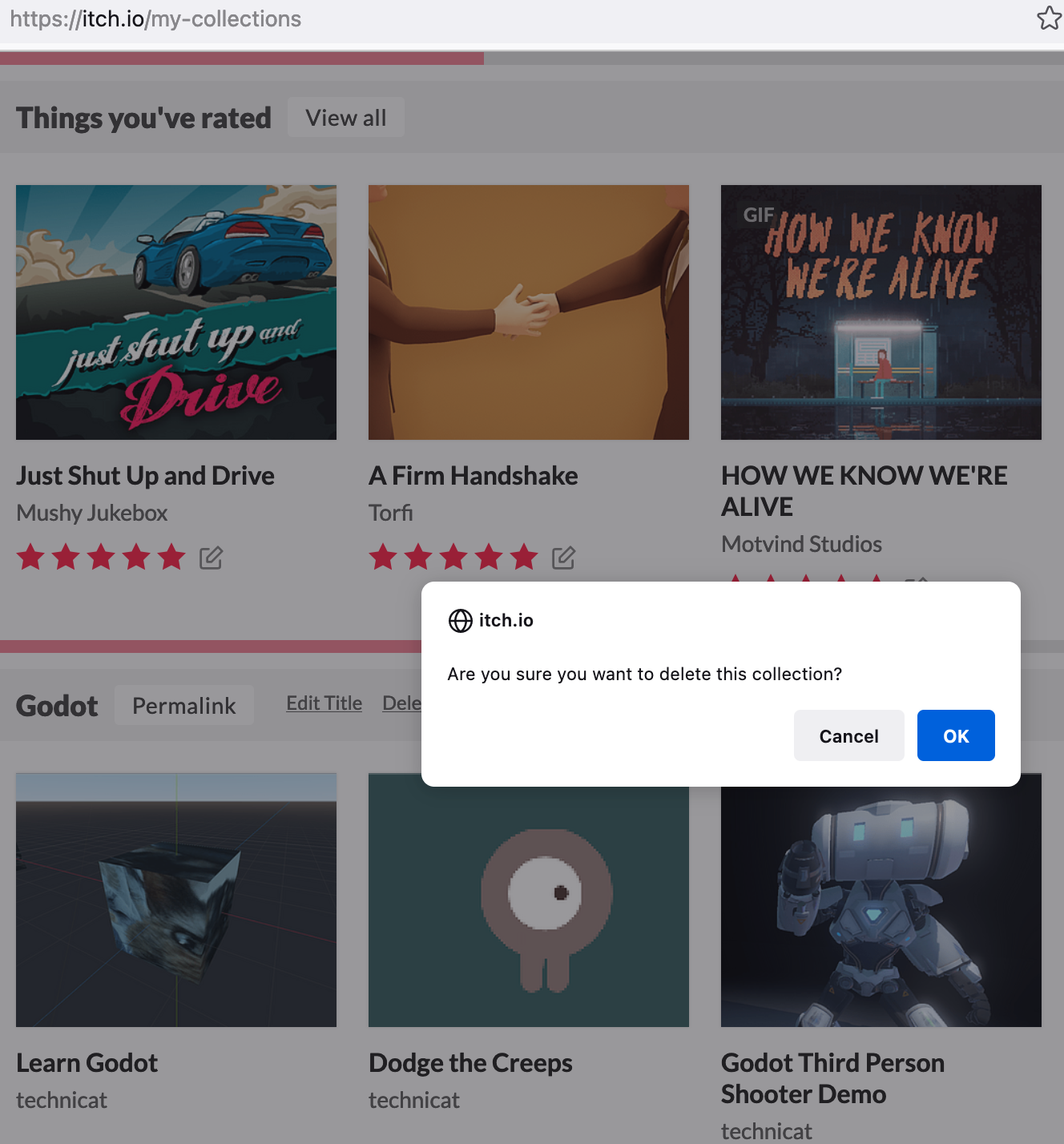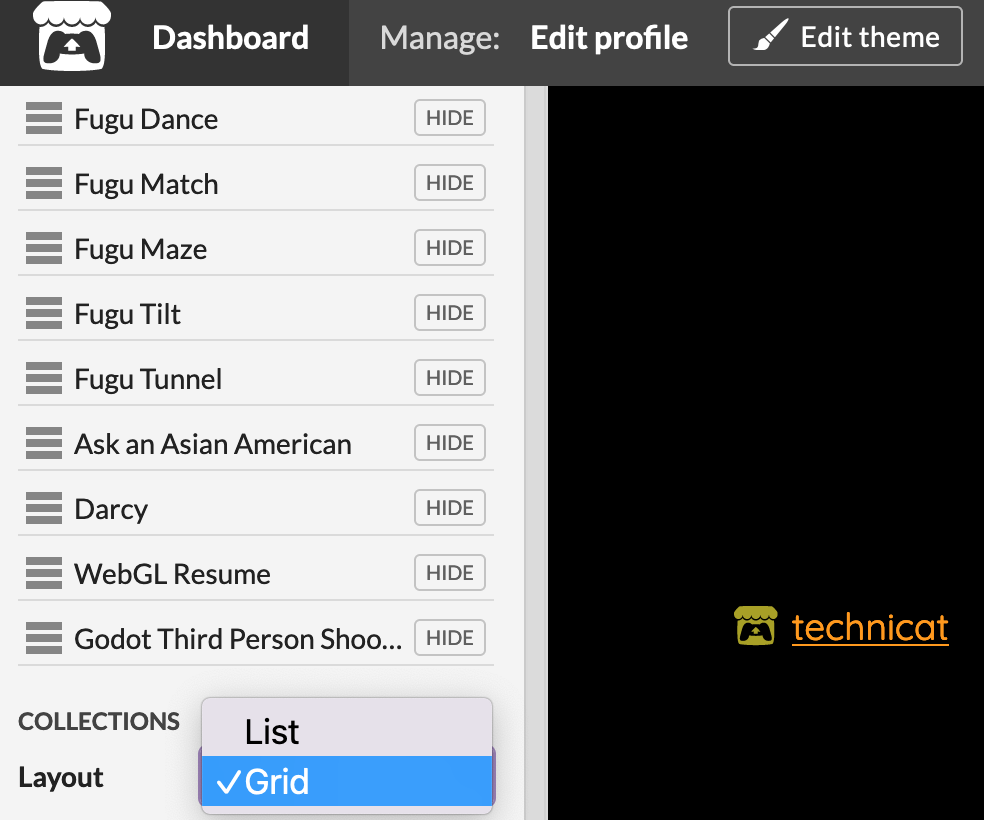Right now I just have some stuff on github (and use github pages as my website), and my revenue, what there is of it, is mostly from Steam and the App Store, anyway. Still, it's nice to have a central spot to throw up whatever you can create, big or small or experimental. I have a grand vision of creating a portfolio site where you can show off whatever you have and link to those you've collaborated with (kind of like LinkedIn but project-based, not company-based), but after some early pathetic PHP attempts I just went with GameJolt and then later Itch.io.
technicat
Recent community posts
Cuervos are ravens? Maybe not great as pets.
https://bestbirdguide.com/can-you-have-pet-raven/
But you could say the same for cats. They're more like roommates.
I agree, it looks harmless, at least no worse than any of the so-called publishers I've made the mistake of working with, and maybe even helpful, but it's weird there's no identifying or company info. It could be an AI trained to tweet and make extravagant promises (again, no worse than any other publisher).
Steam is one of the additional app store links you can add to your Edit Game page, along with the App Store, Google Play..., so doesn't seem like there's any policy against Steam (although adding a Steam link there doesn't result in a displayed Steam badge as it does with the other stores, so a bit of a mixed message...)
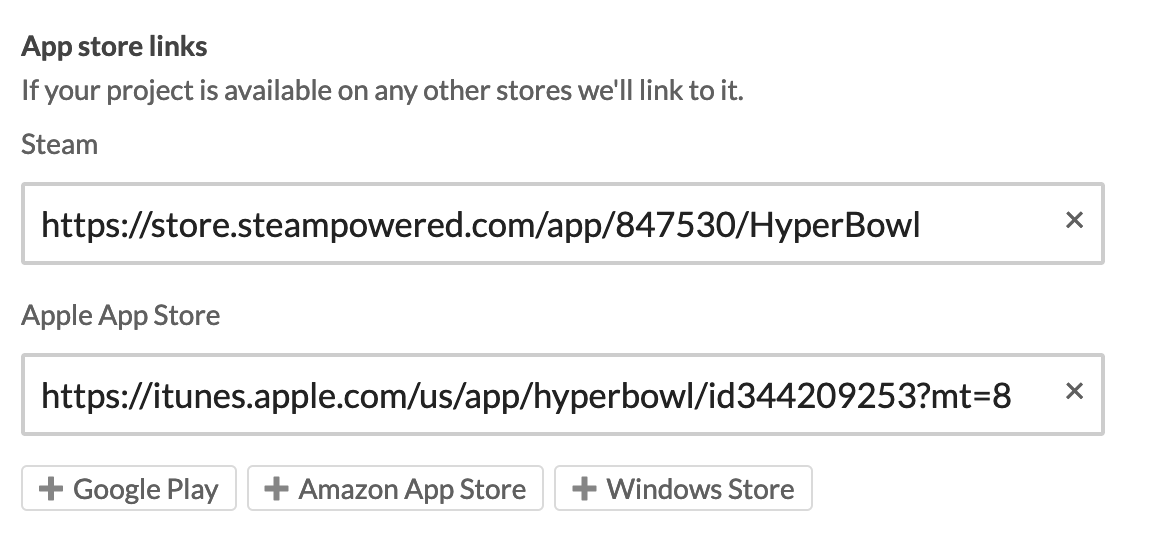
To give some credit, he did what they brought him in to do: bring in more investment, grow them fast and get them to an IPO so they could cash out their stock. In the process, they made Unity free (just about everything you need, unless you just have to have a custom logo), which was after I'd paid six thousand dollars over the years for Unity Pro, and this is why $100k-license engines like Unreal and CryEngine (if anyone still cares) are now free.
Nevertheless, I wasn't excited about him taking over, and the last several years have confirmed my preconception (obnoxious press interviews, sexual harassment allegations...). The last straw for me was when they introduced their publishing service, with partners including a piracy site that already "published" several dozen copies of my game. So I deleted my Unity account over two years ago (funny story,even if you delete your Unity account, your apps with Unity Ads will still display ads generating revenue for Unity, and Google Play users who don't like seeing any ads in a free app will still complain vociferously).
Unity is a big and dominant company, so their product is not going away anytime soon, and they have a lot of really sharp developers, some of who have even reached out to help when I complained on twitter, but again, it's a big company, so it's a mixed bag - some of their staff I'll be happy not to deal with again. And they remind me of Google in how they introduce new services only to lose interest a few months later.
But dropping Unity was a personal decision, not a business decision. It took me six months to port the game I licensed into Unity (and a couple of years for it to really be complete) which involved getting the original game running enough to integrate an FBX exporter, then manually reconstructing all the scenes in the Unity editor and debugging all the coordinate differences (different scale, swapped UVs...) and then of course writing all the code in Unityscript (and later rewriting it all in C#), and since I dropped Unity, I have yet to port anything from my old projects into a new engine or start a new project from scratch. Every engine is different, which is a good thing, but that means you're talking different scripting or programming languages, different APIs, different paradigms (e.g. Unity uses a component system while Godot is more object-oriented).
The MIT license just requires that you retain the original license and copyright in the source code if you make it available or redistribute it. It has no effect on any other code you're using or whatever project you're including it (otherwise I'm sure it would be problematic for every significant graphics engine and tool). I don't believe you need to display the license in your built (binary) project but I think as a courtesy it's good form to provide attribution.
https://fossa.com/blog/open-source-licenses-101-mit-license/
I thought that the reviews are only seen by the developer while the stars are seen by everyone. But now that I look at it again, it says the reviews are also shared with your followers (but not the general public). So you will only see a review if it's written by someone you follow, I guess. Which I think is even more confusing than I thought it was before.

If you're new to coding, any high-level game engine is not going to be easy (but I like to think gamedev is a great way to introduce people to programming who might otherwise not consider it). However, I used Unity for over ten years and dabbled with Unreal (on/off for over ten years), and I expect you'll find Unity easier to get into, in terms of interface, scripting, documentation and tutorials, and I've found their developers helpful on the Unity forum and on social media (although it's not like the old days when you could pretty much talk to all of their developers on the forum). Last I checked, Unreal ditched their scripting language (basically, C is their scripting language), but they have a visual programming option (Blueprint?). Since you don't have to put money down, you might as well check out both and see how far you can get into either of them, and for completeness I suggest taking a look at Godot, which I think is in the same ballpark capability-wise (interface and scripting-wise most similar to Unity) and is open source.
I have emails turned off, so I just get notifications via the alert at top of the browser or (I presume) the itchio app, but looks like you can control that here https://itch.io/user/settings/email-notifications
Their twitter feed is very active, seems to be posting about new games every few hours https://twitter.com/itchio
But I'm not on social media, either, I just use the brute-force method of manually refreshing Recent Posts in this forum, which shows a bunch of stuff I'm not interested in (block doesn't block at that level) A smarter approach would be to use the Subscribe to New Topics option in, for example, New Releases (I know that works because I've activated it accidently a few times).
My practice is to credit where I got the game assets in my game description (and in-game, if I have in-game credits), which I think is a nice thing to do anyway, but in this type of situation this informs the customers where you got the assets from and and that you're using them legitimately (and if another game also licensed them, now they know). There may still be people who cry foul without bothering to read the game description, but what can you do.
Yup, despite not having a linguistics background or fluency in more than one (human) language, I find this stuff pretty interesting. Text-to-speech like just using Siri can expose some of these issues (I like to set Siri to non-American English voices to hear how different it sounds).
My dim sum app uses text-to-speech (and speech to text) for Chinese, and when it's fed one word at a time, the compound words sometimes sound unnatural (and in Chinese sometimes a word's tone might change if it's combined with another word, I think for a similar reason, so it's easier to say the combined words).
Out of curiosity, I just tried google translate, and it pronounces hot dog pretty naturally, but for a contrast, the Japanese loanword throws in an intervening vowel.

I pronounce them as if the two words were connected, no gap between the two consonants, e.g. with hot dog when my tongue hits the roof of my mouth to pronounce the t, it stays there to pronounce the d, so more like hotdog. Though there may be a silent pause between the hit the roof for t and leave the roof for d.
But according to this, it can vary.
https://english.stackexchange.com/questions/514020/how-do-you-pronounce-a-d-at-t...
Same reason people like to accessorize themselves!
Especially in social games like virtual worlds (now called metaverses, again), where the main activity is to walk (or fly) around and chat and show yourself. I worked on a virtual world called Blue Mars (build on CryEngine) over ten years ago that supported in-game developers, some of who created minigames but most of them made avatar accessories you could buy in-game. Blue Mars shut down long ago and all the developer doc I wrote on the wiki is gone but somehow there's still a page about avatar customization.
http://create.bluemars.com/wiki/index.php?title=Avatar_Customization
I've never participated in something like that, but it looks to me like the raised amount is tracked and displayed automatically, no need to put in your own numbers. Or if you mean start off with a non-zero number, you could go ahead and just make an initial purchase, otherwise would seem kind of dodgy.
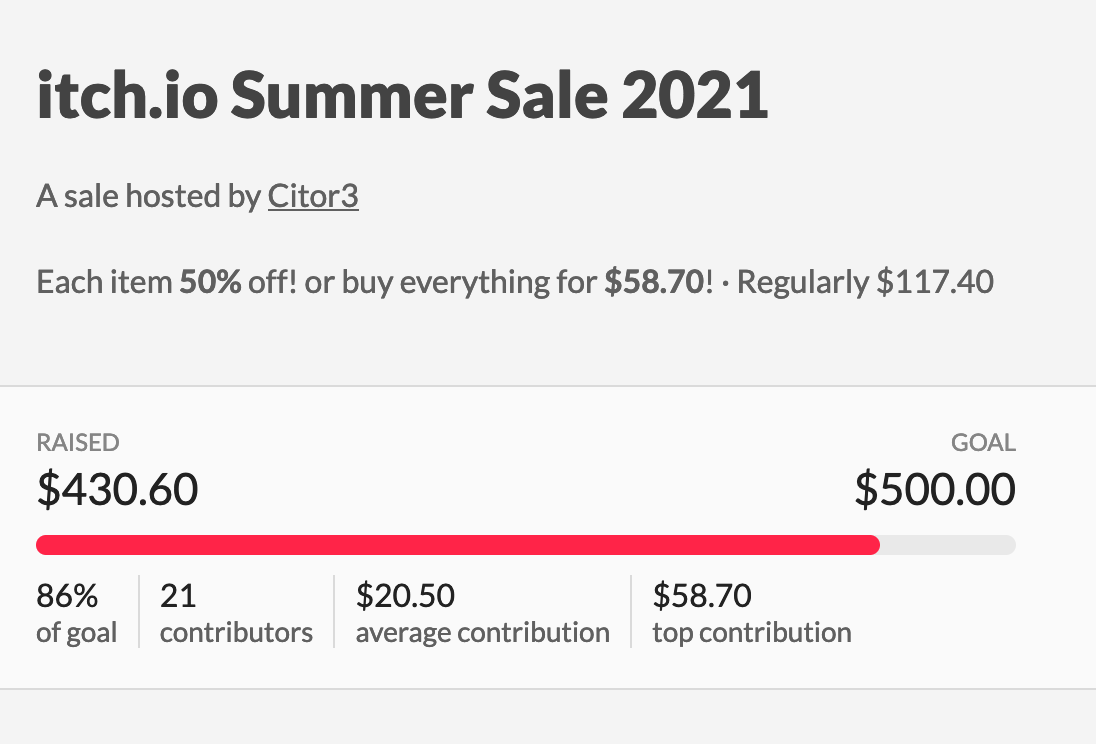
A lot of people seem to get away with it, but if your question is if it's legal to use copyrighted characters in your game without permission, I believe the answer is no.
https://www.aspectlg.com/posts/copyright-in-characters-what-can-i-use



